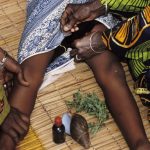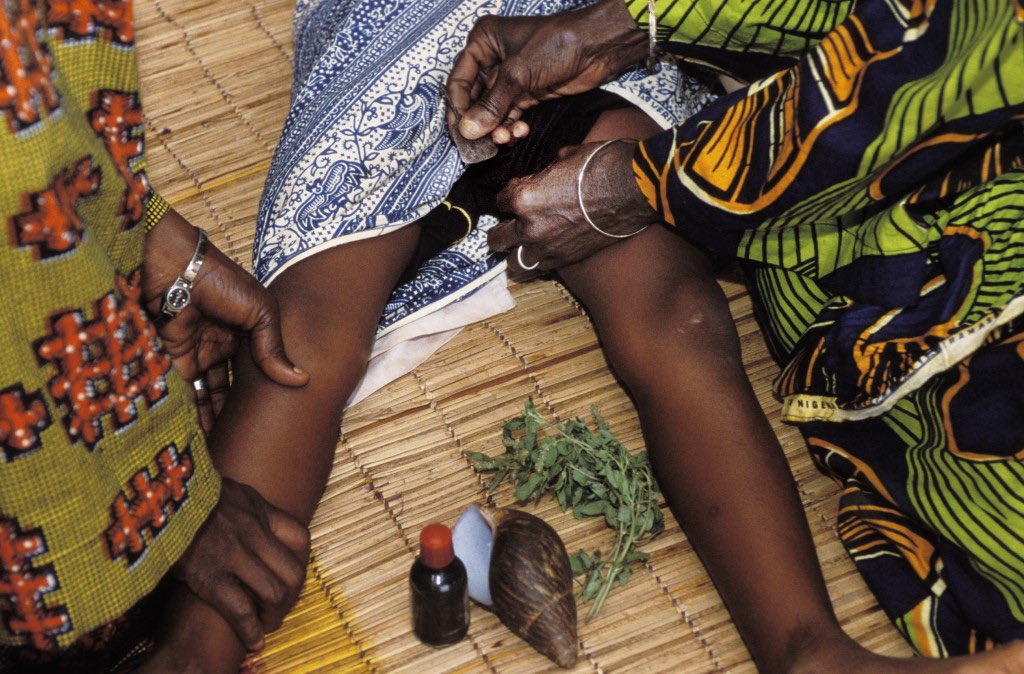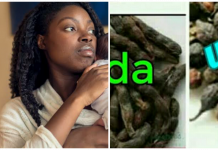List of States in Nigeria that still practice female circumcision(FGM). Analysis of the prevalence of female genital mutilation (FGM) in Nigeria based on State, Geopolitical region, Tribe and Religion.
Nigerian Women age 15-49 who have been circumcised – By State
- Imo: 61.7%
- Ekiti: 57.9%
- Ebonyi: 53.2%
- Kaduna: 48.8%
- Kwara: 46%
- Osun: 45.9%
- Ondo: 43.7%
- Edo: 35.5%
- Jigawa: 34.1%
- Delta: 33.7%
- Oyo: 31.1%
- Enugu: 25.3%
- Lagos: 23.7%
- Kano: 22.2%
- Anambra: 21.4%
- Yobe: 4.2%
- Abia: 12.2%
- Cross River: 11.9%
- Bauchi: 10.7%
- Niger: 10.5%
- Akwa Ibom: 10.2%
- Rivers: 9.3%
- Ogun: 8.2%
- Bayelsa: 6.7%
- Sokoto: 5.4%
- Zamfara: 5.3%
- Benue: 5.3%
- FCT: 5.1%
- Taraba: 3.9%
- Plateau: 3%
- Borno: 2.4%
- Nasarawa: 1.8%
- Kebbi: 1.6%
- Katsina: 1.4%
- Kogi: 1%
- Gombe: 0.1%
- Adamawa: 0.0%
Nigerian Women age 15-49 who have been circumcised – By Geopolitical Zone
- South East: 35.0%
- South West: 30.0%
- North West: 20.2%
- South South: 17.7%
- North Central: 9.9%
- North East: 6.1%
Nigerian Women age 15-49 who have been circumcised – By Ethnic Group
Yoruba: 34.7%
Igbo: 30.7%
Hausa: 19.7%
Fulani: 12.6%
Ekoi: 11.6%
Other: 10%
Ibibio: 9.3%
Ijaw/Izon: 6.9%
Kanuri/Beriberi: 5.6%
Igala: 0.9%
Tiv: 0.8%
Nigerian Women age 15-49 who have been circumcised – By Religion
Catholic: 24.5%
Other Christian: 19.4%
Islam: 18.7%
Traditionalist: 11.9%
Other: 2.2%
Source: NDHS (2018) (StatiSense)
Analysis:
Based on geopolitical regions, South Eastern Nigeria has the highest rate of female circumcision and this is closely followed by South West, North West, South-south (Niger Delta), and North -central. The North East have the least rate of female genital mutilation in Nigeria and this is commendable.
On state level, Imo state has the highest number of female genital cutting in Nigeria with a frightening 61.7 percent. Surprisingly, Adamama and Gombe recorded zero female circumcision.
For South-southern Nigeria (Niger Delta), Edo and Delta takes the lead in FGM…
Female circumcision in edo state nigeria: 35 percent (highest in the region)
Female circumcision in Delta state Nigerian: 33.7 percent (second highest)

Female genital mutilation is a barbaric and archaic practice that has no benefits whatsoever and is now a criminal offence in Nigeria. There are different kinds, in some cases, the clitoris is removed and the vaginal opening is narrowed or made smaller.
FGM is when a female’s genitals are deliberately cut or removed. It’s also known as ‘female circumcision’ or ‘cutting’, but has other names.
It is child abuse.
It is a crime.
And it is punishable by law.
It is a form of control on female sexuality and violence towards women.
FGM is an harmful traditional practice
A few facts about FGM:
1. There is no medical basis for FGM. Even many cultures have abolished it in Africa.
2. It is often done by someone with no medical training, using instruments such as knife, scalpel, scissors, glass or blades.
3. Girls are rarely given anaesthetic or antiseptic treatment and are forcefully restrained.
4. It is quite violent and horrible.
The possible consequences of circumcising your baby girl
1. Bleeding
2. Infection such as tetanus, hepatitis b and C, HIV.
3. Sexual problems
4. Damaged private part,
5. Difficulty during childbirth(baby might die during delivery, she might need CS, she may take too long delivering)
6. Problems with urination
7. Depression, a low self esteem
8. Problems menstruating
9. Psychological trauma
10. Misandry
11. Emotional damage,
12. Hatred of own body,
13. Poor self esteem and self image.
Beside the health challenges, FGM also violates a series of well-established human rights principles, norms and standards.
Human rights principles violated by FGM includes:
1) Principles of equality and non-discrimination on the basis of sex
2) Right to life when the procedure results in death;
3) Right to freedom from torture or cruel, inhuman or degrading treatment or punishment.
4) Rights of the child; and
5) Right to the highest attainable standard of health.
How to know if FGM happened:
A girl may be taken to “village”.
She may miss school for days.
She will said to be “made into a woman”.
She may be told it’s a “ceremony”.
She suddenly becomes withdrawn.
She plans to run from home. Or tries to.
These are signs of FGM.
Commentaries:
Dr Olufunmilayo
Aproko Doctor
Ugwu Charles Egede
Dr Udomoh























